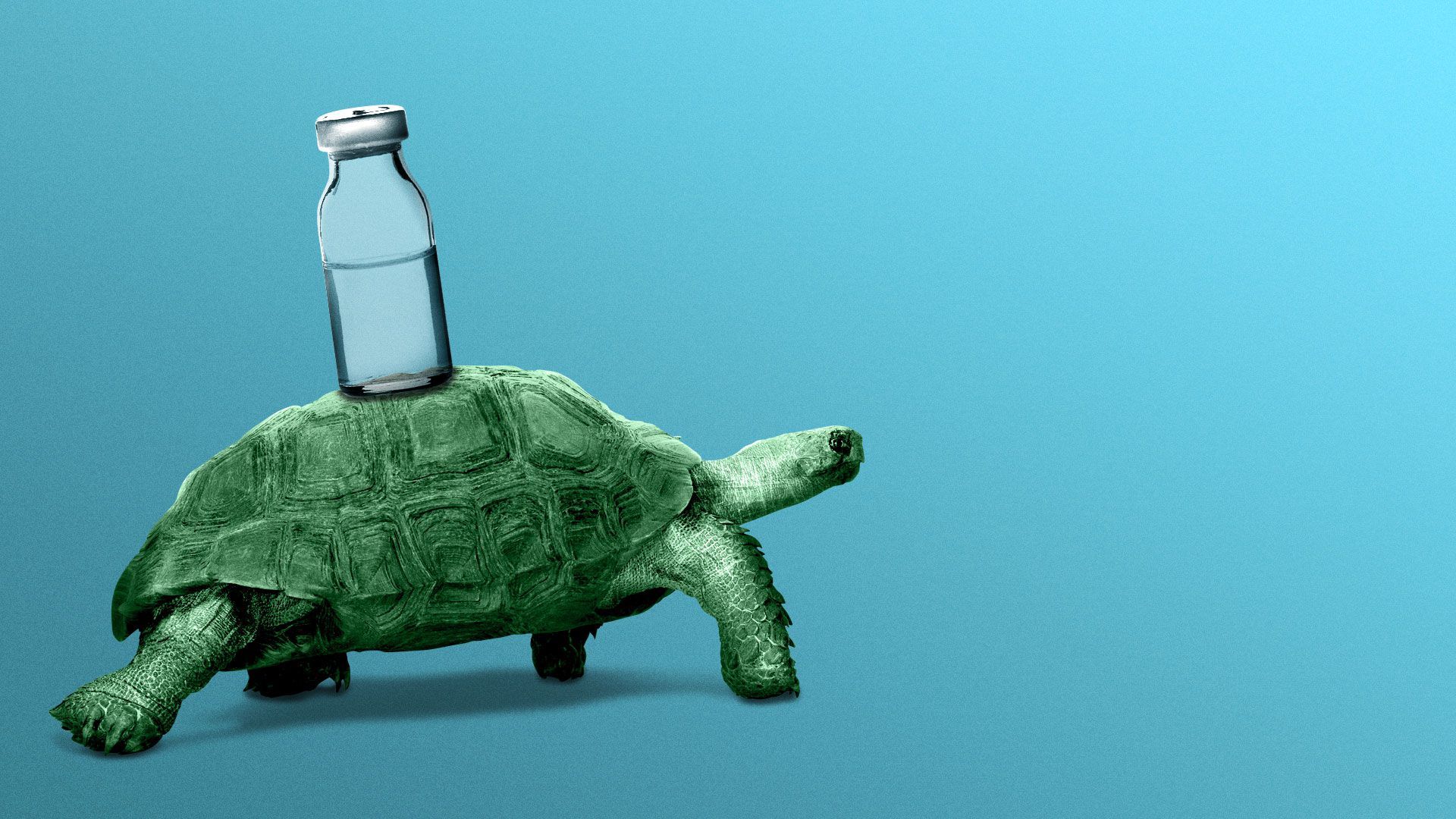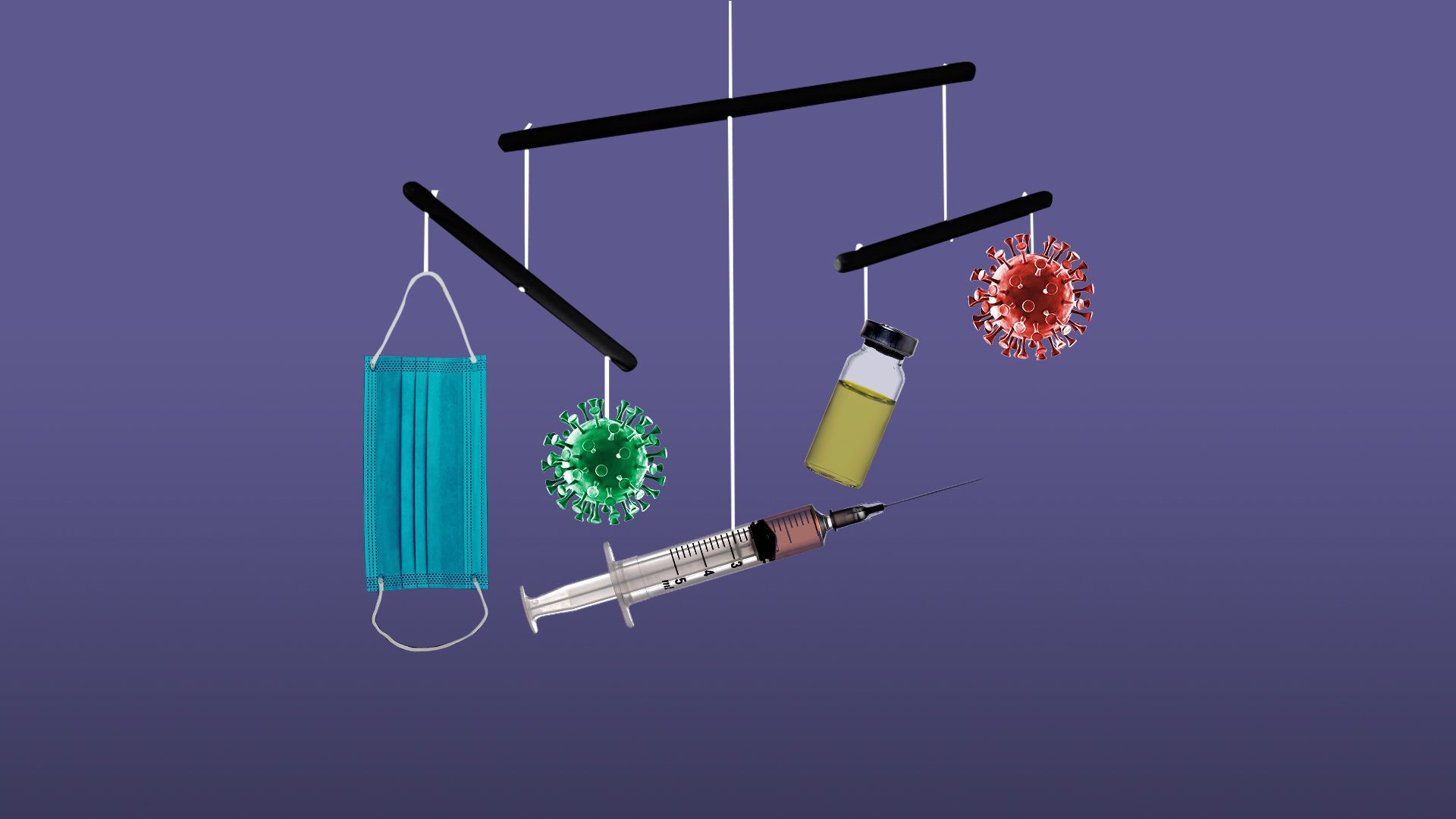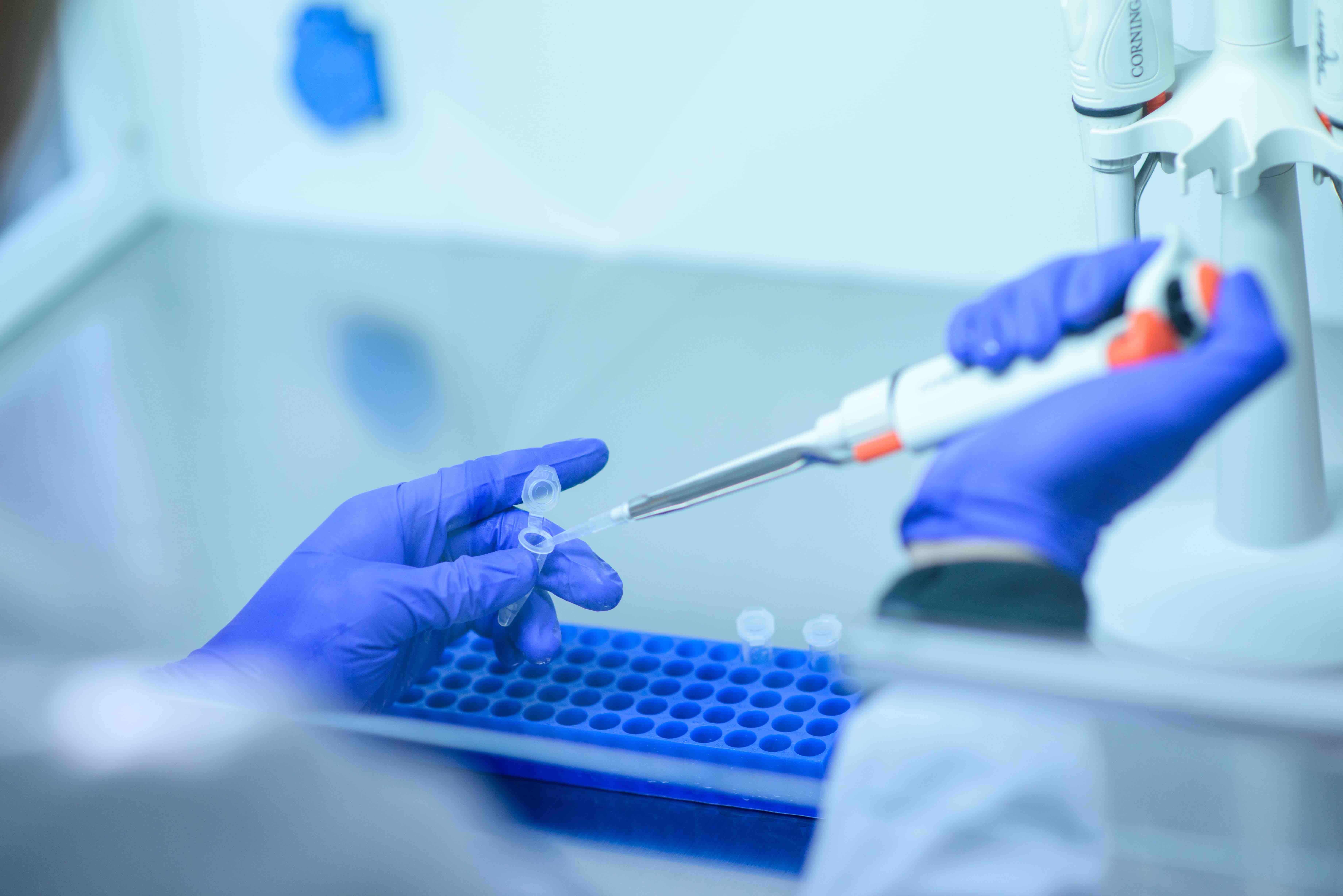| | | | | | | Presented By PhRMA | | | | Vitals | | By Caitlin Owens ·Feb 12, 2021 | | Good morning. Situational awareness: The Biden administration today will notify states that it plans to revoke the Trump administration's Medicaid work requirements, Politico scooped last night. Today's word count is 998, or a 4-minute read. | | | | | | 1 big thing: Why vaccine production is taking so long |  | | | Illustration: Eniola Odetunde/Axios | | | | COVID-19 vaccine makers are under intense pressure to rev up production, but the scale of the challenge is unprecedented — and the speed of production is limited, Axios' Joann Muller reports. Why it matters: Even with help from the federal government and outside companies, vaccine-making is a complex, time-consuming biological process. That limits how quickly companies like Pfizer and Moderna can accelerate their output even during a crisis. The big picture: With new, more transmissible variants emerging, we're in a race to get shots into more people's arms. What would normally take years to set up is being compressed into less than a year, leaving engineers to adapt manufacturing processes on the fly. Where it stands: Both Pfizer and Moderna say they're on track to meet their commitments to deliver 200 million doses each to the U.S. over the first half of the year. The latest: The Biden administration said last week that it will use its wartime powers under the Defense Production Act to give Pfizer priority access to critical components such as filling pumps and filtration units to try to help address bottlenecks. - Meanwhile, Pfizer continues to tweak its processes to boost output and says it is adding more suppliers and contract manufacturers to the vaccine supply chain.
- Novartis, Sanofi and Merck are among 10 contract manufacturers that will help the company manufacture more doses, a Pfizer spokesman tells Axios.
- Pfizer and BioNTech will still do most of the work in their facilities, but contract manufacturers will help with specific tasks like formulating lipid nanoparticles, sterile filling, inspection and packaging.
Go much deeper. |     | | | | | | 2. What pregnant people face during COVID-19 |  | | | Illustration: Aïda Amer/Axios | | | | New and expecting mothers are navigating a morass of science and medicine as they try to mitigate the risks of COVID-19 to themselves and their babies, Axios' Alison Snyder and Eileen Drage O'Reilly report. Why it matters: Pregnancy can be hard during normal times, but there's an extra layer of uncertainty during the pandemic as COVID-19 presents unique risks to pregnant people. Driving the news: NIAID director Anthony Fauci said Wednesday that roughly 20,000 pregnant people had been vaccinated in the U.S. so far, and no complications have been seen. - But "it takes us quite a bit of time to follow the woman and her fetus and then her baby and see how things will turn out," Geeta Swamy, associate professor of OB/GYN and an associate vice president for research at Duke, points out.
Between the lines: This leaves pregnant people to weigh the risks. The CDC doesn't take a stance, stating, "People who are pregnant and part of a group recommended to receive the COVID-19 vaccine may choose to be vaccinated." Data show pregnant people are at higher risk of developing severe COVID-19 compared to women of the same age who are not pregnant, and there appears to be a risk of preterm birth. - Clinical trials, including those for COVID-19 vaccines, typically don't include pregnant or lactating people, leaving a gap in knowledge about the effect of one of the most important pandemic-fighting tools.
One open question is whether a baby is protected if their pregnant mother is vaccinated. Go deeper. |     | | | | | | 3. The latest in the U.S. |  Data: The COVID Tracking Project; Note: Does not include probable deaths from New York City; Map: Andrew Witherspoon/Axios President Biden on Thursday slammed his predecessor for "not doing his job in getting ready for the massive challenge of vaccinating hundreds of millions of Americans." Former President Trump was much sicker with the coronavirus than was originally disclosed, NYT reports. 175 experts largely agreed that it's now safe for elementary schools to be open for in-person learning, as long as basic safety measures are taken, also per NYT. Pharmacies and grocery stores are trying to figure out what to do with extra vaccine doses at the end of the day, as they prepare to begin administering coronavirus vaccines to the public, WSJ reports. |     | | | | | | A message from PhRMA | | Biopharma is committed to being a part of the solution | | |  | | | | As we usher in a new administration and Congress, there are many things on which we can all agree, like building a more just, equitable society. | | | | | | 4. The latest worldwide |  A drug used to treat arthritis lowers the chances of severely ill patients dying from COVID-19, shortens time in hospital and reduces the need for invasive mechanical ventilation, a U.K. study out Thursday shows. Some countries — including China, India and the U.A.E. — are using vaccines as a diplomacy tool, per NYT. Some airlines are beginning to advertise fully vaccinated flight crews, per WashPost. Australia's health minister said today that the country is likely to manufacture and administer its own version of the AstraZeneca coronavirus vaccine by the end of March, per AP. |     | | | | | | 5. Dog(s) of the week | | We are back to three dogs of the week because you all sent in so many good ones this week. - "It's hard because all dogs are cute," says my mom, adding that this has been the hardest week yet to choose.
- "Glad it's not my job," she said as she walked away. (This was after she agreed to help me pick one.)
Oskar. Photo: Sheri Engelken Meet Oskar! - "Oskar Ragamuffin Snugglefish Bunnyfeet Doodle ... just had his first birthday," writes his mom, Sheri.
- "He loves snow and squeaky toys. In fact, he's demonstrated total mastery of squeaky toys. He's a hugger and a lover. He enjoys going for walks, hikes & paddles in the canoe."
Spud/Spudlette. Photo: Jan Jorolan Meet Spud/Spudlette! - "This little guy was one of 42 Papillons rescued two days before Christmas," writes his mom, Jan.
- "His name became 'Spud' cause the Foster Mom thought he was smaller than a potato in your hand ... Now he is known as Spudlette as he is almost five pounds of fur in motion and 6 years old."
- "He has his favorite place beside me in the lounge chair as we watch TV or take a nap. When we travel in the RV he immediately takes his place in the lounge chair and waits for me."
Raven. Photo: Nanci Mason And finally, meet Raven! - Raven the greyhound was "rescued last year from the cruel dog racing industry," writes her mom, Nanci.
- "Raven often sleeps on her back with her feet in the air. Some call this 'roaching.' Raven is soft, clean, sweet, and funny, and she runs so fast that it's impossible to photograph her doing zoomies around the yard."
- "Mine was the first house she had been in and she had to learn what glass doors are. She doesn't need to learn tricks; her 'job' is to just be a loved, happy and loyal family member."
|     | | | | | | A message from PhRMA | | We are committed to being a part of the solution | | |  | | | | As we usher in a new Congress and new administration, we can all agree that people need quality, affordable health coverage that works when they need it. - We are focused on solutions that help patients better afford their medicines and protect access to innovation today and in the future.
| | | | Keep sending the dogs! Remember that you can always resubmit! | | | | Axios thanks our partners for supporting our newsletters.
Sponsorship has no influence on editorial content. Axios, 3100 Clarendon Blvd, Suite 1300, Arlington VA 22201 | | | You received this email because you signed up for newsletters from Axios.
Change your preferences or unsubscribe here. | | | Was this email forwarded to you?
Sign up now to get Axios in your inbox. | | | | Follow Axios on social media:    | | | | | |











No comments:
Post a Comment